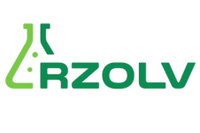The Hardware Behind Cybersecurity: A Cleantech Solution
Despite the market’s software-oriented approach, hardware plays a crucial role in the cybersecurity sector. We turned to Electronic Recyclers International CEO John Shegerian to hear his expert breakdown of how hardware impacts the growing market.
When you think about cybersecurity, it’s easy to frame it as a software problem. However, there is a very real hardware component as well. Sometimes, this can be used to mitigate cyber attacks but, more often than not, it presents an additional point of weakness for companies, governments and organizations.
INN turned to Electronic Recyclers International CEO John Shegerian to understand the the hardware side of things. Electronic Recyclers International is America’s undisputed leader in electronic waste destruction. And so, without further ado, here’s what Shegerian had to saw about cybersecurity’s hardware problem, and how cleantech might just be the key solution.
Industry evolution
When Shegerian co-founded Electronic Recyclers in 2002, he had no idea what his company would go on to become. At the beginning, the company set out to provide an efficient, cleantech solution for disposing of e-waste. In April of 2015, the company dealt with 10,000 pounds of electronic waste. By April 2016, the company recycled more than 25 million pounds of electronic waste. However, this growth wasn’t just driven by an increasing concern for the environment.
In a surprising twist, cybersecurity became one of the major motivators behind this growth. Although there was “no iPad, no iPod, no robots and no wearables when we started, we’ve evolved to directly address their impact,” explained Shegerian. As companies house more and more sensitive data on their electronic devices, it becomes vital that they dispose of this information in a secure fashion. As Shegerian explains, “all of these unicorn cybersecurity companies [which focus on software] are useless unless you’re also figuring out how to destroy the hardware appropriately.” And that’s where Electronic Recyclers comes in.
Clear market demand
Good thing for Shegerian, there is an obvious demand for the sort of work that he does. According to the CEO, “most companies are still severely exposed” to potential damage from e-waste. Notably, this spans all sectors – from private companies to the federal government, organizations haven’t been paying due attention to this aspect of cybersecurity and that has left them vulnerable.
Organizations are now waking up to the damage that can be caused by a malicious data breach, which places Electronic Recyclers in a strong position. From a numbers perspective, there’s a projected industry compound annual growth rate of 24.9 percent between 2012 and 2020 in North America. But you don’t even need to look at statistics to see this shifting market. On a political level we see this transformation occurring right before our eyes, as Democratic presidential candidate Hillary Clinton was the very public recipient of a data breach. And in the private sector too, a high profile string of security and hardware breaches has left the public wary of where their data is going.
Electronic Recyclers offers companies, government and other organizations an environmentally aware manner of disposing this sensitive data, left on cell phones, laptops and all manner of other electronic devices. Best of all? The company prioritizes data security above almost everything else.
What’s next for the company
Investors who think that Shegerian is onto something might be in luck. Although the company is currently privately held, Shegerian prioritizes “whatever maximizes shareholder value,” and, right now, it looks like that may be an IPO. Although the company has received many different offers about future strategies, Electronic Recyclers have held off. However, things appear to have shifted, as significant demand for the company’s service, combined with macro growth in the cybersecurity and sustainability sectors, have created strong market demand for the company.
Although timelines for this sort of decision are always malleable, Shegerian reassures me that an IPO “is going to be sooner rather than later.” Whether that means the second half of this year, or the outset of 2017, remains to be scene. But all told, “it’s going to be a very very interesting next year, and beyond.” The market is growing, the company is growing, and investors should be growing in awareness for the potential which Electronic Recyclers holds.
Don’t forget to follow us @INN_Technology for real-time news updates.
Securities Disclosure: I, Morag McGreevey, hold no direct investment interest in any company mentioned in this article.



